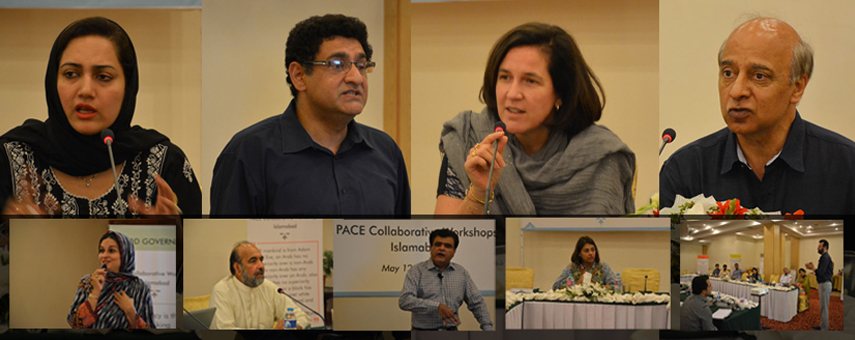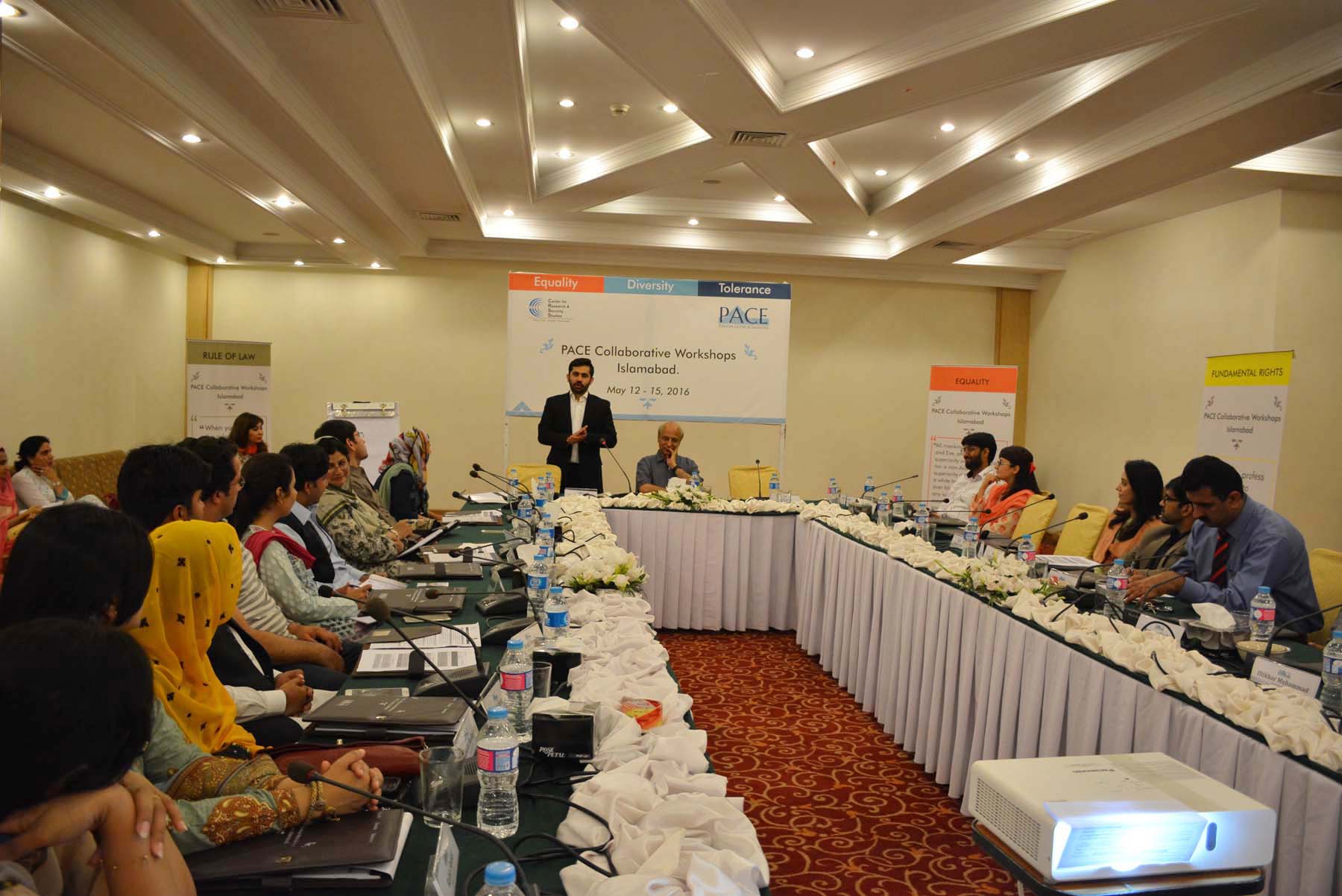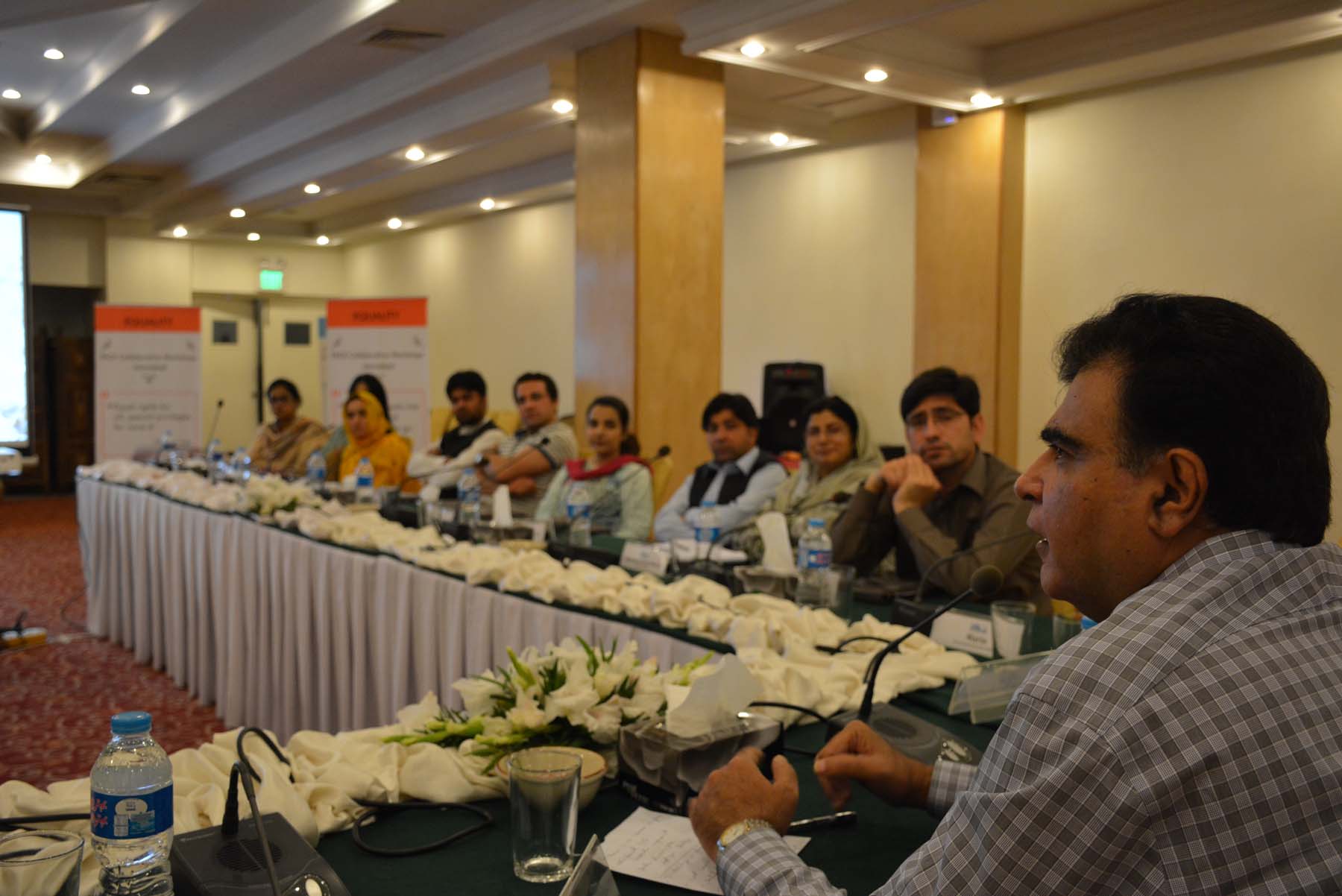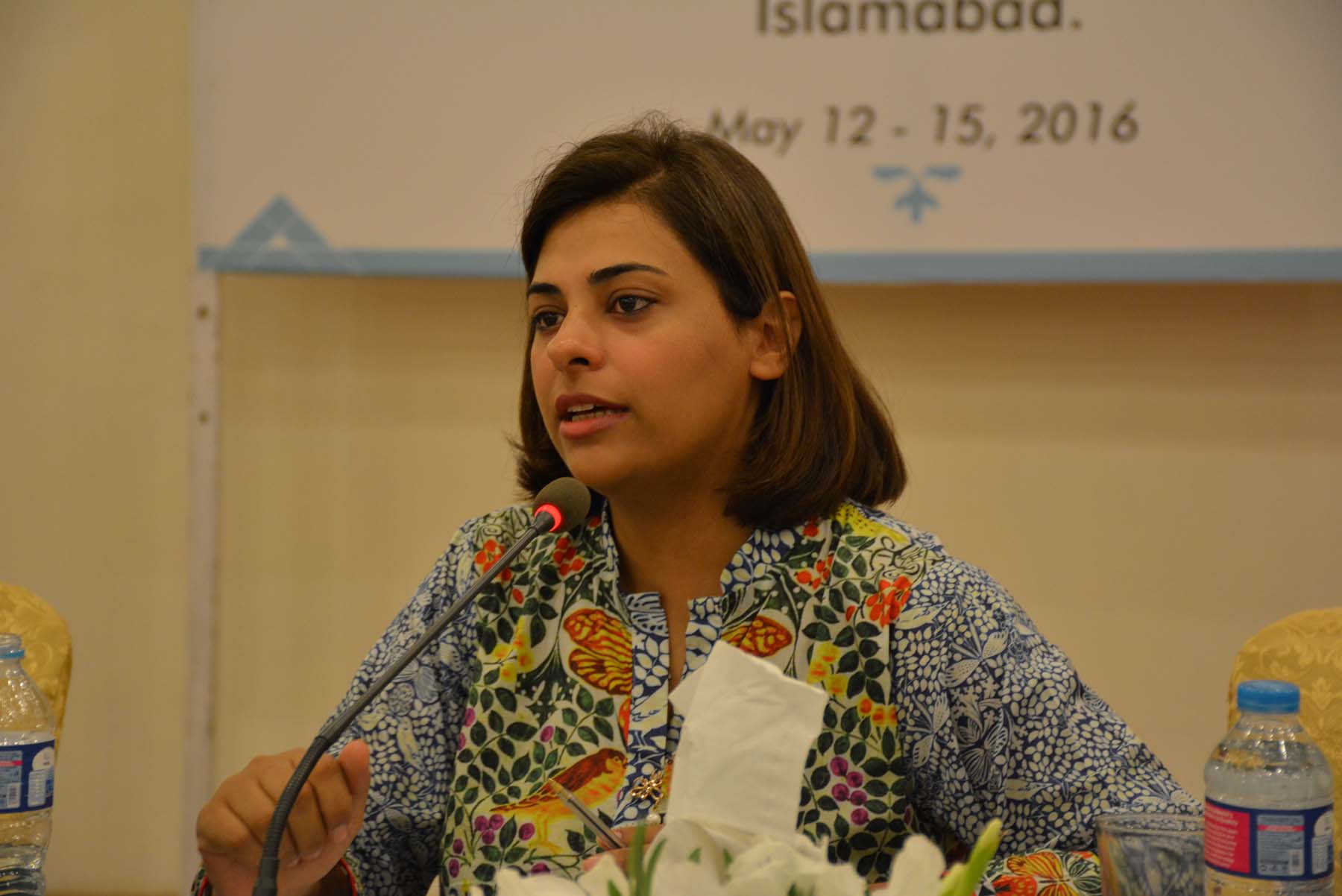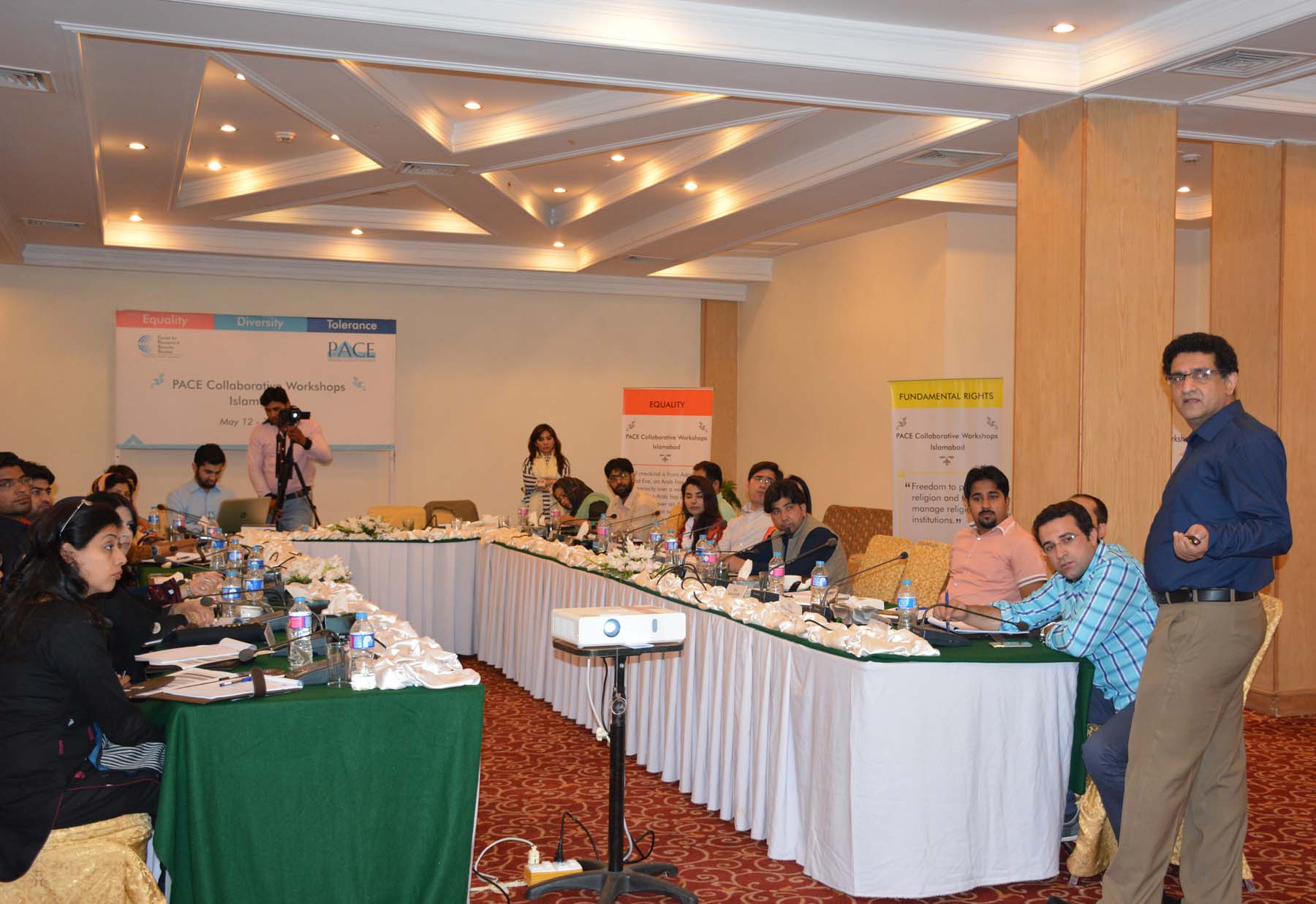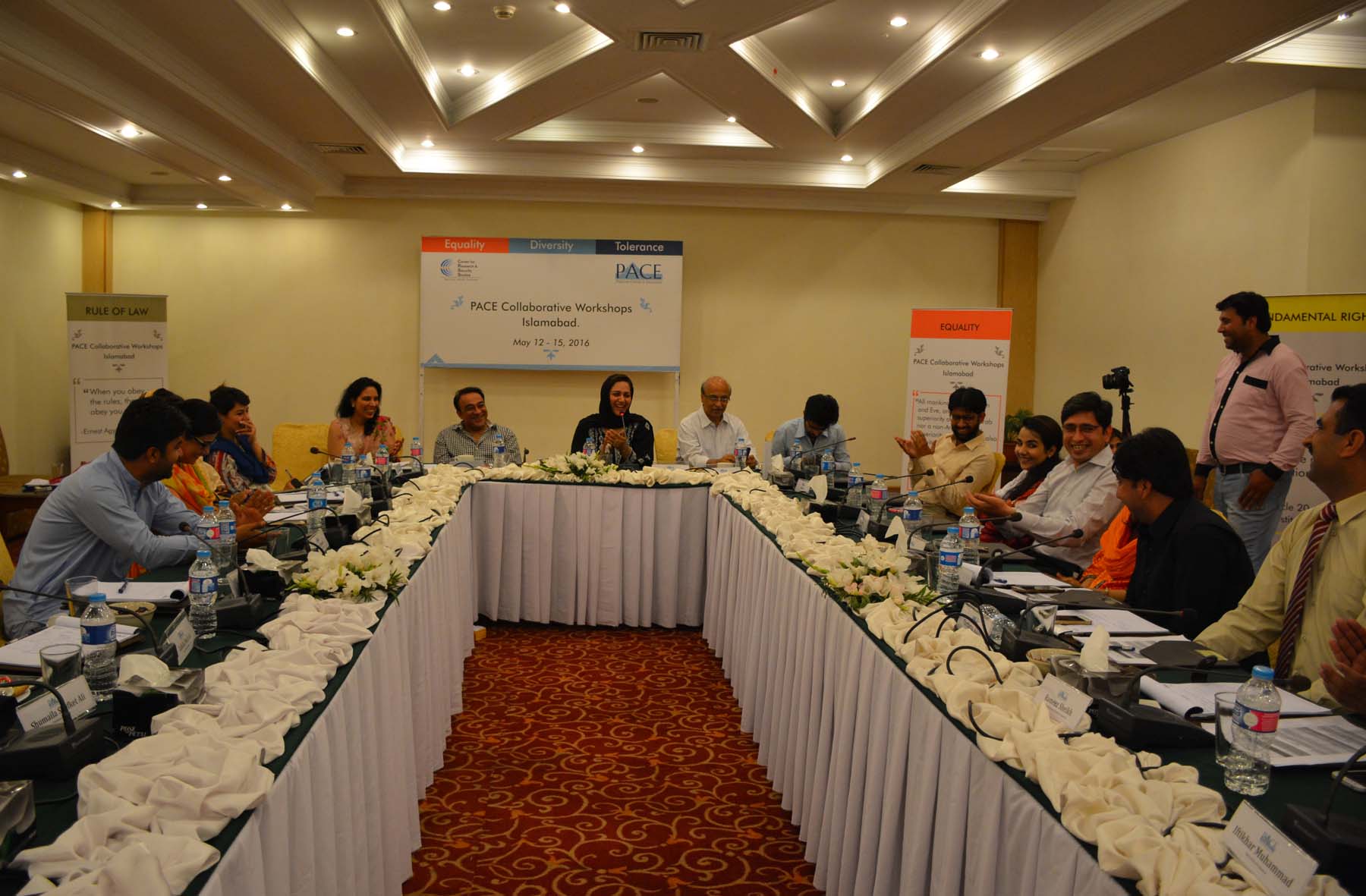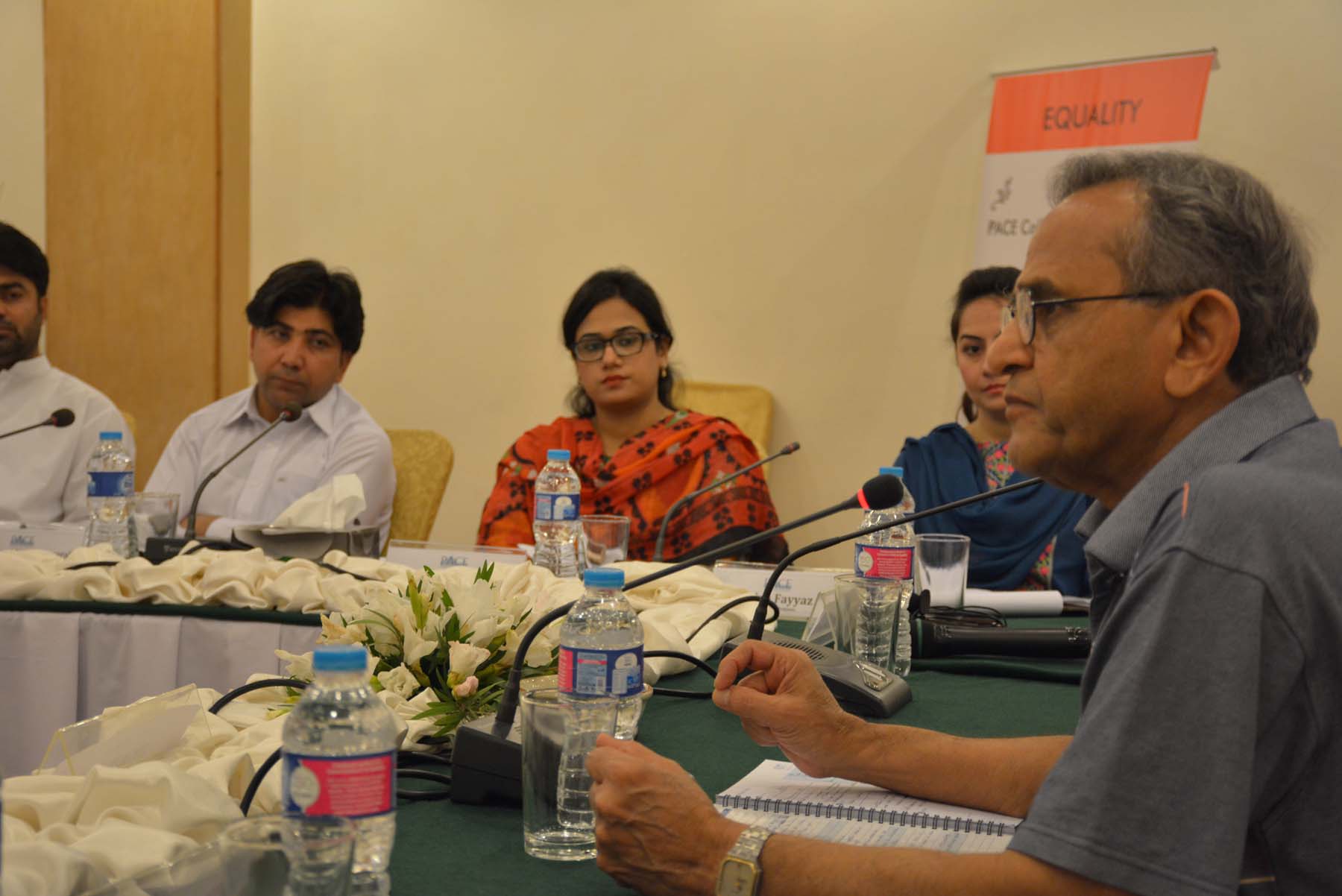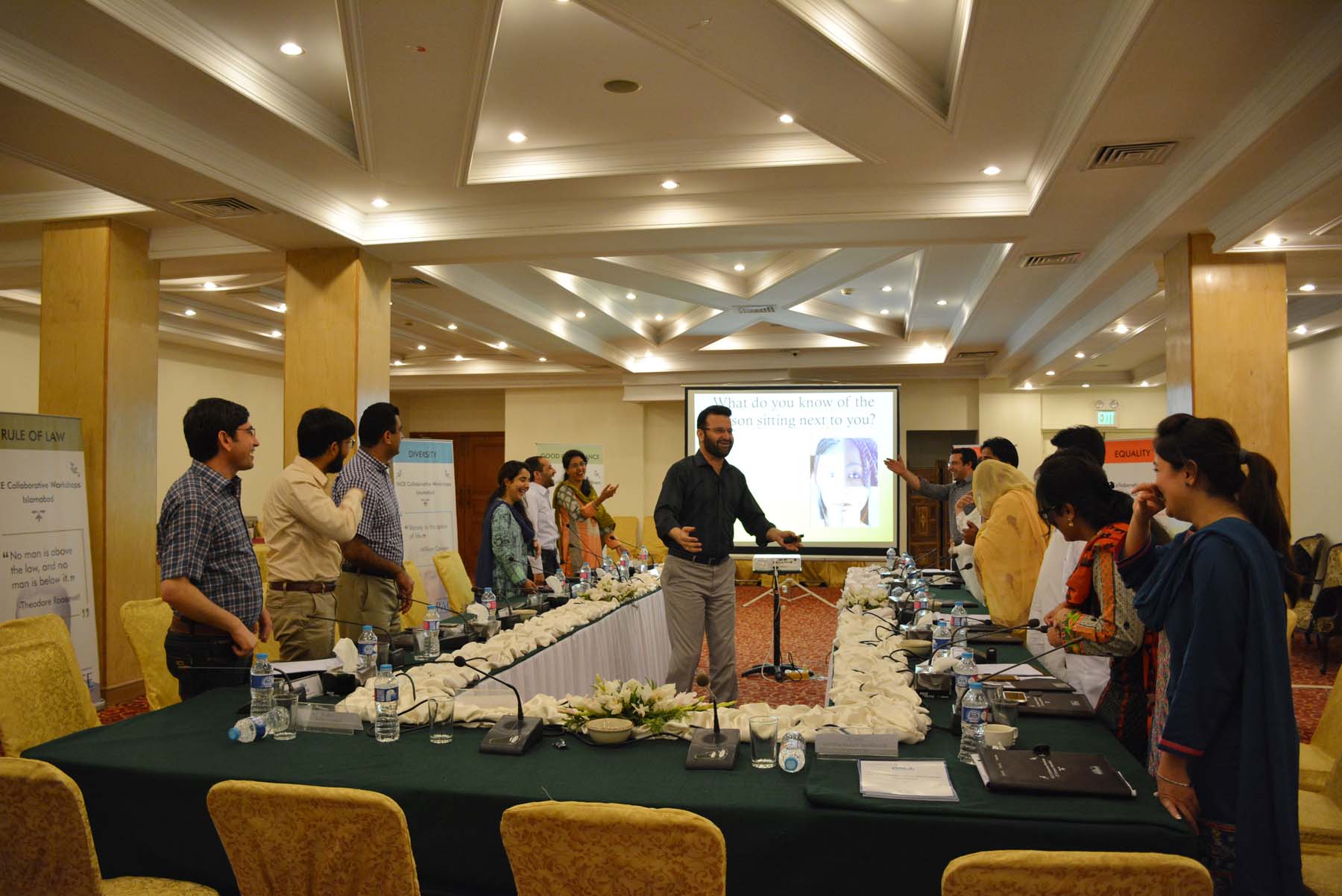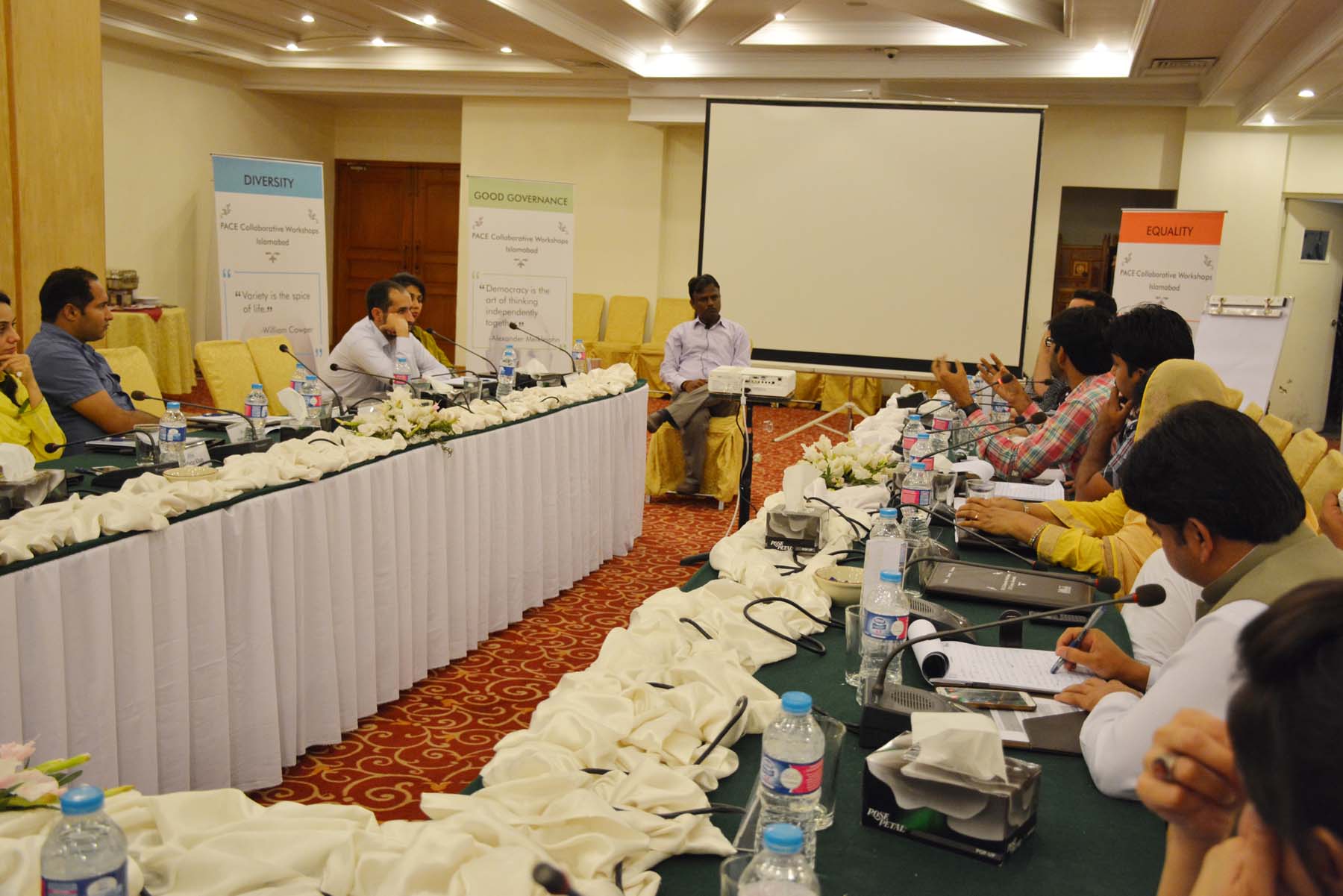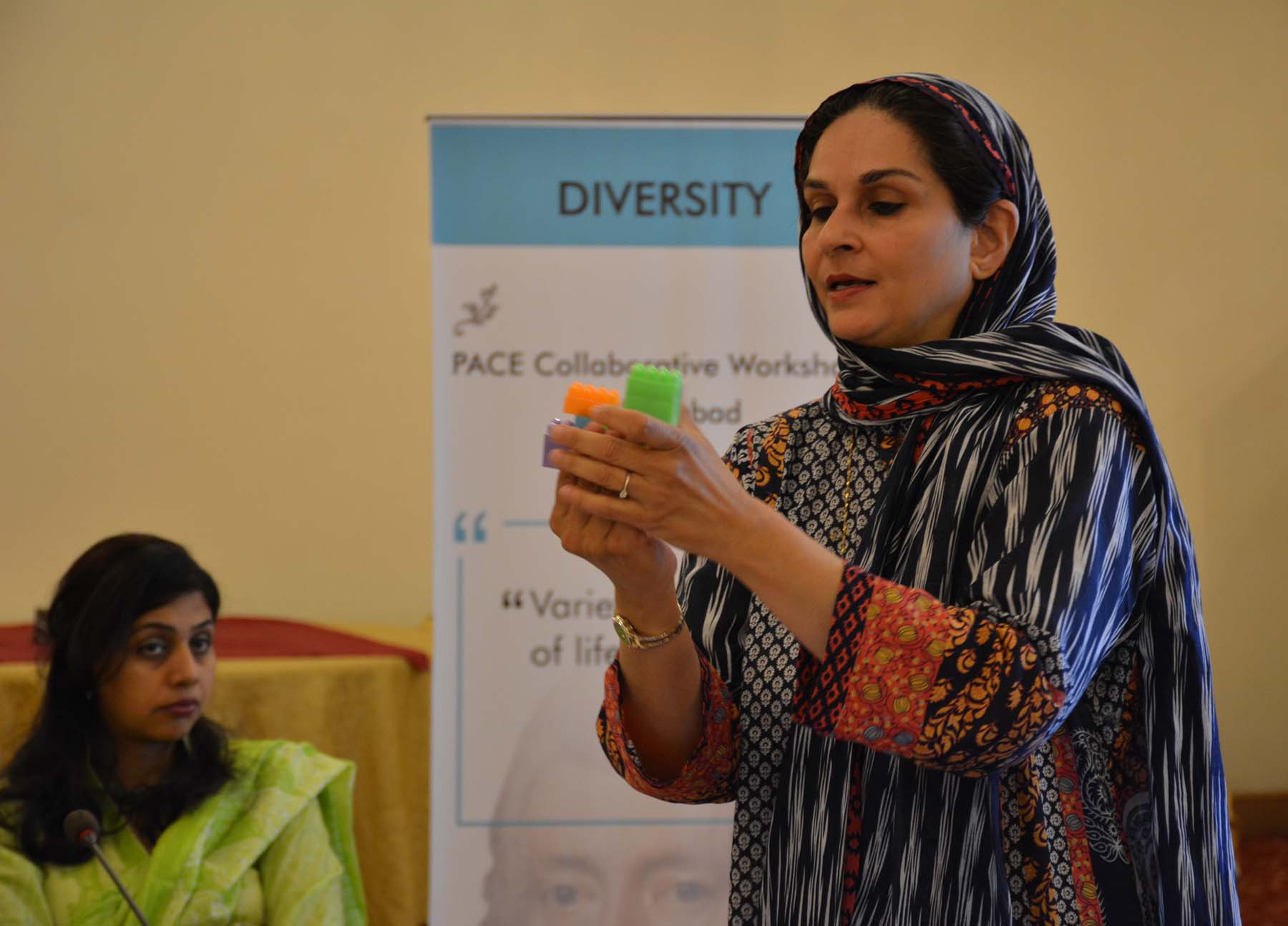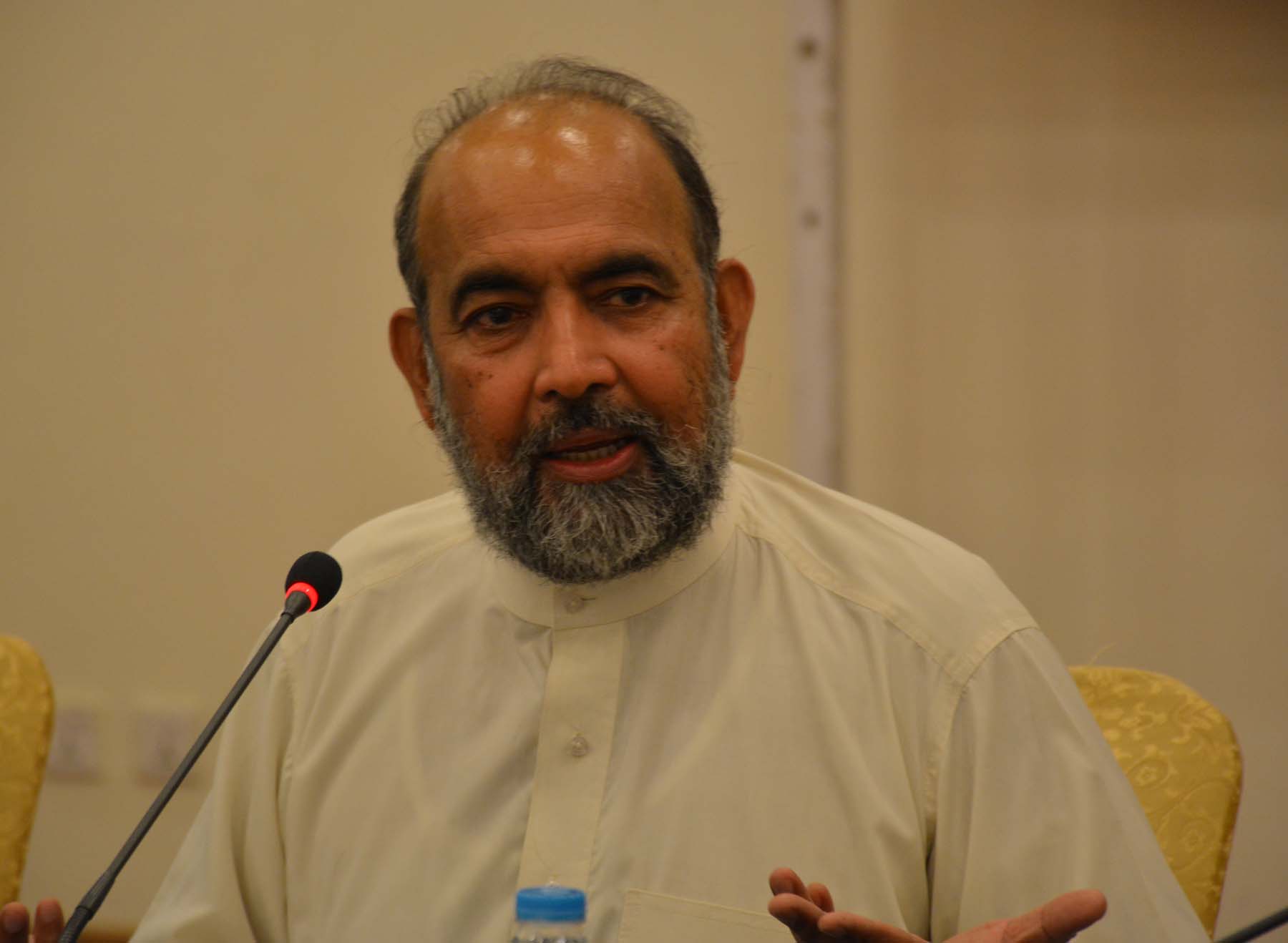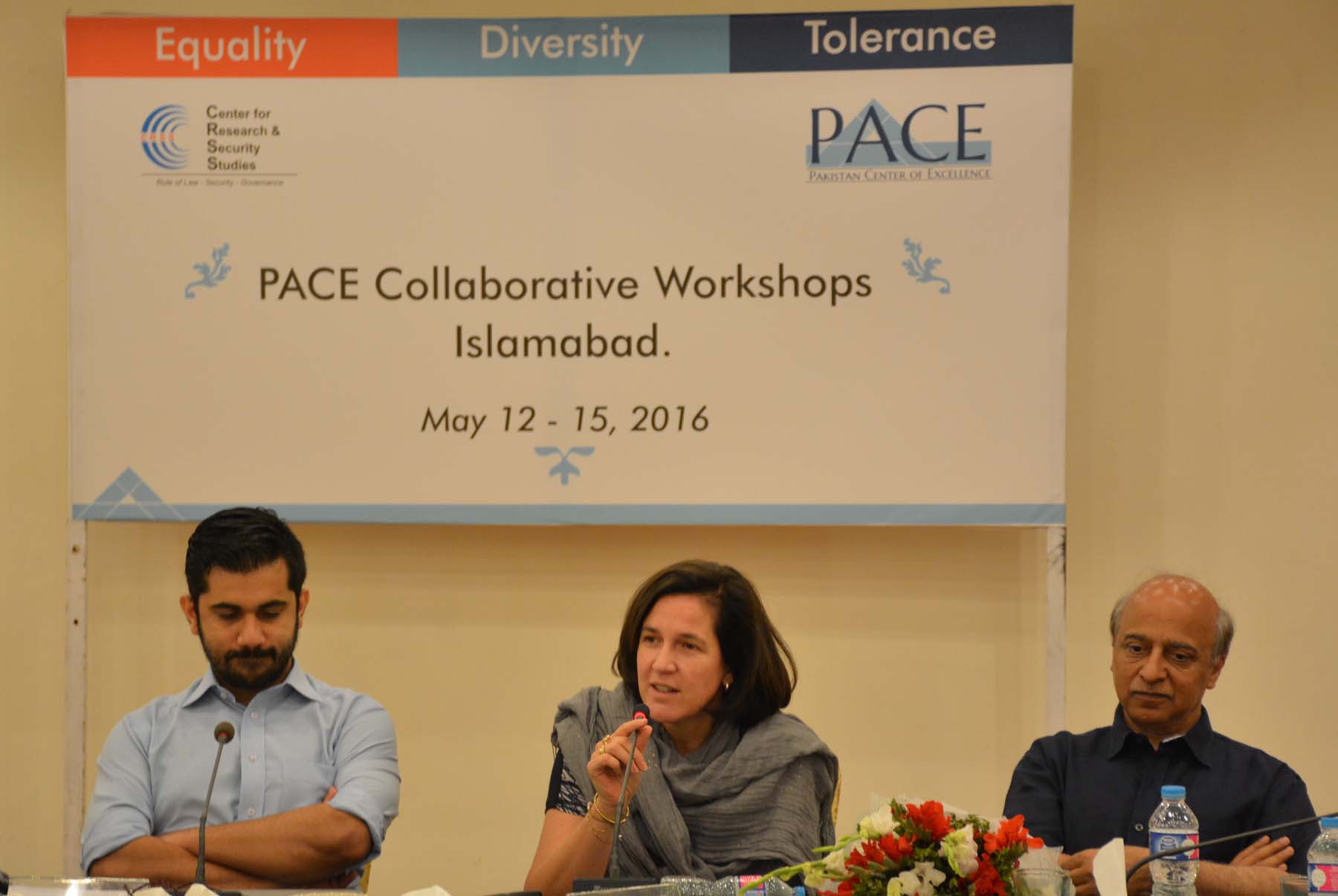The Center for Research and Security Studies (CRSS) conducted the third four-day collaborative workshop for young university lecturers and professors between May 15th and 16th, 2016 at Hill View Hotel, Islamabad. The workshop was conducted under the umbrella of the Pakistan Center of Excellence (PACE), a counter-radicalization, pluralistic values focused project, in collaboration with the Dutch Government. Participants included young university lecturers and professors from Quaid-e-Azam University (QAU), Karachi University, Balochistan University, University of Turbat, National Defense University and University of Peshawar.
Mr. Zeeshan Salahuddin, Director Communication and Strategy, welcomed participants to the workshop, saying that PACE is put together by CRSS to counter radicalization, inculcate critical thinking, question preconceived notions and narratives, and embed the national discourse in constitutionalism and the rule of law. He said that PACE is grounded in the universal values of tolerance and acceptance. He elaborated that adherence to rule of law, respect for diversity, opinions and rights, and ideas of perseverance, coexistence, peace building and tolerance can be inculcated in the minds of the youth only by the teachers, the gate keepers of the future.
[read more about Zeeshan Salahuddin]
Mr. Imtiaz Gul, Executive Director, CRSS elaborated on the objectives of the training, saying equal citizenry is a concept which is guaranteed in the constitutions of every developed country, including Pakistan. He said that the primary objective of the workshop was to trigger critical thinking through a discourse anchored in fundamental global values such as socio-political diversity, acceptance of diversity, rule of law and equal citizenry. The idea is to create a critical mass of young leaders equipped with the skills to critically analyze issues, look at each other as equal citizens, and correct misconceptions about marginalized communities.
Workshop Core Areas
The young professionals were trained in following areas:
- Leadership and motivation
- Equal citizenry and respect for rule of law
- The intersection of democracy, governance and accountability
- Respect for diversity, opinions and rights
- Rights of minorities and other marginalized groups
- Constitutionalism, and adherence to Pakistan’s Constitution, particularly articles 8-28
- The importance of asking critical questions in the pursuit of knowledge
- Role and future of media in Pakistan
Workshop Modules
The cadre of young lecturers was trained by the experts in the above mentioned fields including: Dr. Niaz Murtaza, Ms. Sara Farid, Mr. Zubair Ghauri, Ms. Asma Shirazi, Mr. A. H. Nayyar, Mr. Safiullah Gul, Ms. Humaira Masihhuddin, and Dr. Qibla Ayaz.
Mr. Niaz Murtaza shared his views on the concept of democracy and good governance. He said a state has to go through a number of stages to reach good governance. No institution is stable at its initial stage, and same is the case with democracy. Democracy only delivers when it is mature and stable. He said that egalitarian societies are the ones where people have equal access to education, capital, opportunities and freedom. In such societies, strong institutions, able leadership and good governance emerge and development takes place. He concluded the session by saying that poor democracy is always better than the best dictatorship/authoritarianism.
[read more about Niaz Murtaza]
Ms. Sara Farid stated that the media should consider norms and values of a society, selection of words and body language should match the cultural values. Sensationalism should be avoided and self-censorship should be considered. Biased and abusive attitude should not be accepted. She stressed on the importance of being neutral and presenting authentic news. She also elaborated on the future of electronic broadcast media in Pakistan.
Dr. Zubair Ghauri expanded his views on respect for diversity, opinions and rights. He said that as citizens of the Islamic Republic of Pakistan, whenever we talk about humanity and humanitarian affairs, we are closely linked with the Islamic concept of human rights and equality. The constitution of Pakistan guarantees equal rights to all the citizens but the preamble restricts equal citizenry by defining the concept of divine sovereignty. But there are few minority groups who do not believe in divine sovereignty and on the basis of their beliefs we deprive them of the concept of equal citizenry.
[read more about Dr. Zubair Ghauri]
Ms. Asma Shirazi kicked off her session with a discussion on the fundamentals of democracy saying freedom of expression and speech is the jewel of democratic societies. Accountability is ensured with the participation of people in the democratic process. In Pakistan, democracy is in a weak position; it could never mature because of the imposition of martial law every few years. Democracy is the only system which can make Pakistan stronger, if we allow all four pillars (executive, judiciary, legislature and media) of government to operate unhampered, and hold them accountable for their actions.
[read more about Asma Shirazi]
Dr. A. H. Nayyar spoke about how education can be helpful in inculcating critical life skills among youth, such as equal citizenry, respect for rule of law, respect for diversity, rights, and opinions. His lecture started with him highlighting the issues that exist in our society due to which we are not able to provide equal citizenry to everyone. He said that might is considered to be right and we do not show any respect for rule of law which presents a retrogressive image of our society. We are self-obsessed and support such ideologies which support this pattern of thinking. He also explained how important civic education is to make people aware of the sacrifices they have to make to accommodate each other for creating a tolerant and peaceful society.
[read more about Dr. A. H. Nayyar]
Mr. Safiullah Gul, bureau chief for a private television channel in Peshawar, conducted a session on leadership and motivation where he emphasized the extent to which effort is directed towards a goal, and its components: activation, persistence and intensity. He encouraged debate among audience over the subject of constitution and rule of law and also informed them on how the FCR was promulgated by the British to govern the tribal areas at the time.
[read more about Safiullah Gul]
Mr. Kapil Dev, minority leader and activist, shared his views on the status of minorities, and how can we promote harmony among different religious groups. He started the session by sharing the statistics of minority groups in Pakistan. He said that minorities in Pakistan have to face different issues like forced conversions, forced migration and severe implications of blasphemy law. Though, a huge number of Muslims themselves are under the accusation of blasphemy law but Christians are the second largest group who are targeted by this law. Hindus are forced towards conversion and migration. Ahmadis, are also considered as marginalized group and are forced to leave their hometowns and property.
He further shared that despite of all these negative things, there are a few positive steps taken by the government to protect minorities such as Hindu Marriage Act, holiday announced on Easter and celebration of Holi by the political leaders. He said, a tolerant society can only emerge if we allow ourselves to have a heart to accept and respect the religious belief of all.
The last day of the workshop kicked off with social activist and advocate Ms. Humaira Masihhudin speaking on the theme of pluralism and multiculturalism. She said, “Human beings belong to one origin and one place, and no purely homogeneous society that exists in the modern world. Most societies consist of different ethnic groups. We may define minority as a group of people who are singled out from the other groups and differently treated, because of their physical or cultural characteristics. Minority is a subordinate group as opposed to the dominant group.”
“In Islam, the concept of diversity is clearly inclusive,” she continued. “In the Quran,” she said, “humans are addressed to treat one another without any discrimination and respect each other’s beliefs and should never use abusive language or show disrespectful attitude toward others. When we look at the character of the Holy Prophet (PBUH), He always respected the non-Muslim groups in Mecca and Medina. Even when we talk about the day Mecca was conquered by Muslims, the Prophet forgave all of his enemies for what they had done to harm him. His last sermon included the lines, “All mankind is from Adam and Eve, an Arab has no superiority over a non-Arab nor a non-Arab has any superiority over an Arab; also a white has no superiority over black nor a black has any superiority over white except by piety (taqwa) and good action”. In short, Islam is the religion of tolerance and coexistence, love and peace for others even if they belong to different religious or cultural groups.”
[read more about Humaira Masihuddin]
Mr. Qibla Ayaz spoke about democracy, governance and accountability. He said that accountability is a prerequisite for the democratic systems. When we talk about Pakistan, democracy has always been portrayed as a failed system. We need to ponder either democracy has really failed or is it just been portrayed as such. Democracy stabilizes with able leadership and political maturity and this is what we lack in Pakistan. Good governance can also emerge only if democracy is mature and stable.
Nanna Stoltz, First Secretary Political Affairs, Embassy of the Kingdom of the Netherlands, during the closing ceremony of Pakistan Center of Excellence’s (PACE) third round of collaborative workshops said, “In the Netherlands, we have this quote that it takes a village to raise a child. The idea of teachers being a gatekeeper intersects nicely with this idea, as teachers are part of the community that can help raise and provide critical thinking skills to children. Without the ability to ask these critical questions, it is impossible for a society to advance, progress, and evolve”.
Mr. Imtiaz Gul, Executive Director, CRSS, said that it was important to inculcate critical thinking in our youth, and to equip them with the art of questioning the narratives they had been given. He said that teachers were the gatekeepers of our future, and had the ability to shape an entire generation’s mindset to propagate tolerance, diversity and equality.

